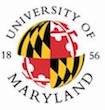|
|
Scientific Computing I - AMSC/CMSC 660, Fall 2022
|
|
Basic Information
|
|
|
| |
|
Overview
|
This course is an introduction to fundamential techniques in scientific
computing, including
numerical linear algebra,
solution algorithms for nonlinear systems of equations,
optimization,
numerical solution of ordinary differential equations,
and
Monte Carlo simulation.
For each topic, there will be material on theory, computation and
software development.
Students are expected to have an undergraduate-level knowledge of numerical
analysis, including linear equations, nonlinear equations, integration and
interpolation, and to have some programming experience.
There are no specific programming language requirements, and assignments
can be done in a variety of languages, including Matlab, Python, C or C++.
|
| |
|
Outline of Topics Covered
|
- Matrix Factorizations
- Matrix decompositions and their uses:
LU and QR factorizations, eigendecompositions
singular value decomposition, software
- Nonlinear Systems
- Newton's method and variants
- Continuation
- Globally convergent methods
- Optimization
- Unconstrained optimization:
line searches and trust regions, Newton-like methods, conjugate gradients
- Constrained optimization
barrier method, reduced-variable methods
- Monte-Carlo Simulations
- Basic statistics: random variables, pseudo-random numbers
- Mean, variance, central limit theorem
- Monte-Carlo simulation and convergence
- Bayesian methods
- Ordinary Differential Equations
- Numerical solution of initial value problems
- Differential-algebraic equations
- Boundary value problems
|
| |
|
References
|
There will be no assigned text.
Much of the material can be found in the references listed below.
-
D. Calvetti and E. Somersalo,
Introduction to Bayesian Scientific Computing:
Ten Lectures on Subjective Computing,
Springer, New York, 2007.
-
J. W. Demmel,
Applied Numerical Linear Algebra,
SIAM Publications, Philadelphia, 1997.
-
G. H. Golub and C. Van Loan,
Matrix Computations,
Fourth Edition, Johns Hopkins University Press, 2013.
(Older editions are also appropriate.)
-
J. Kaipio and E. Somersalo,
Statistical and Computational Inverse Problems,
Springer, New York, 2006.
-
C. T. Kelley,
Iterative Methods for Linear and Nonlinear Equations,
SIAM Publications, Philadelphia, 1995.
-
C. T. Kelley,
Iterative Methods for Optimization,
SIAM Publications, Philadelphia, 1999.
-
R. J. Leveque,
Finite Difference Methods for Ordinary and Partial Differential
Equations,
SIAM Publications, Philadelphia, 2007.
-
J. Nocedal and S. J. Wright,
Numerical Optimization
Second Edition, Springer, New York, 2006.
-
L. N. Trefethen and D. Bau, III,
Numerical Linear Algebra,
SIAM Publications, Philadelphia, 1997.
-
D. S. Watkins,
Fundamentals of Matrix Computations
Third Edition, Wiley, New York, 2010.
(Older editions are also appropriate.)
These are largely affordable books and electronic versions of many of
them are freely available to UMD students and personnel.
Most of the books published by SIAM are available in electronic format at
no cost to University of Maryland students (connected through the UMD VPN),
through the SIAM web page, https://siam.org/.
Electronic versions of the books published by Springer are also freely
available to UMD affiliates through the VPN.
SIAM membership is also free for UMD students who use the UMD VPN to connect.
|
| |
|
Grading
|
Grades will be determined as follows:
- 4-6 homework assignments: 40%
- In-class midterm examination: 25%
- Final exam (format to be determined): 35%
The homework will consist of both analysis and computational testing.
Computations can be done using any convenient programming tools.
| | |
|
Other Policy Matters
|
Late homework:
Late assignments will be accepted within 48 hours of the due date and
not later.
The value of late assignments will decrease according to the following
rule:
- within 24 (weekday) hours after the due date: 85% of the original
value
- within 48 (weekday) hours after the due date: 70% of the original
value.
Plagiarism:
You are welcome to discuss assignments in a general way among yourselves,
but you may not use other students' written work or programs.
Use of external references for your work should be cited.
Clear similarities between your work and others will result in a grade
reduction for all parties.
Flagrant violations will be referred to appropriate university authorities.
Classroom protocols:
We will follow university guidelines concerning masking and any
pandemic-related requirements.
|
|
| | |
|
